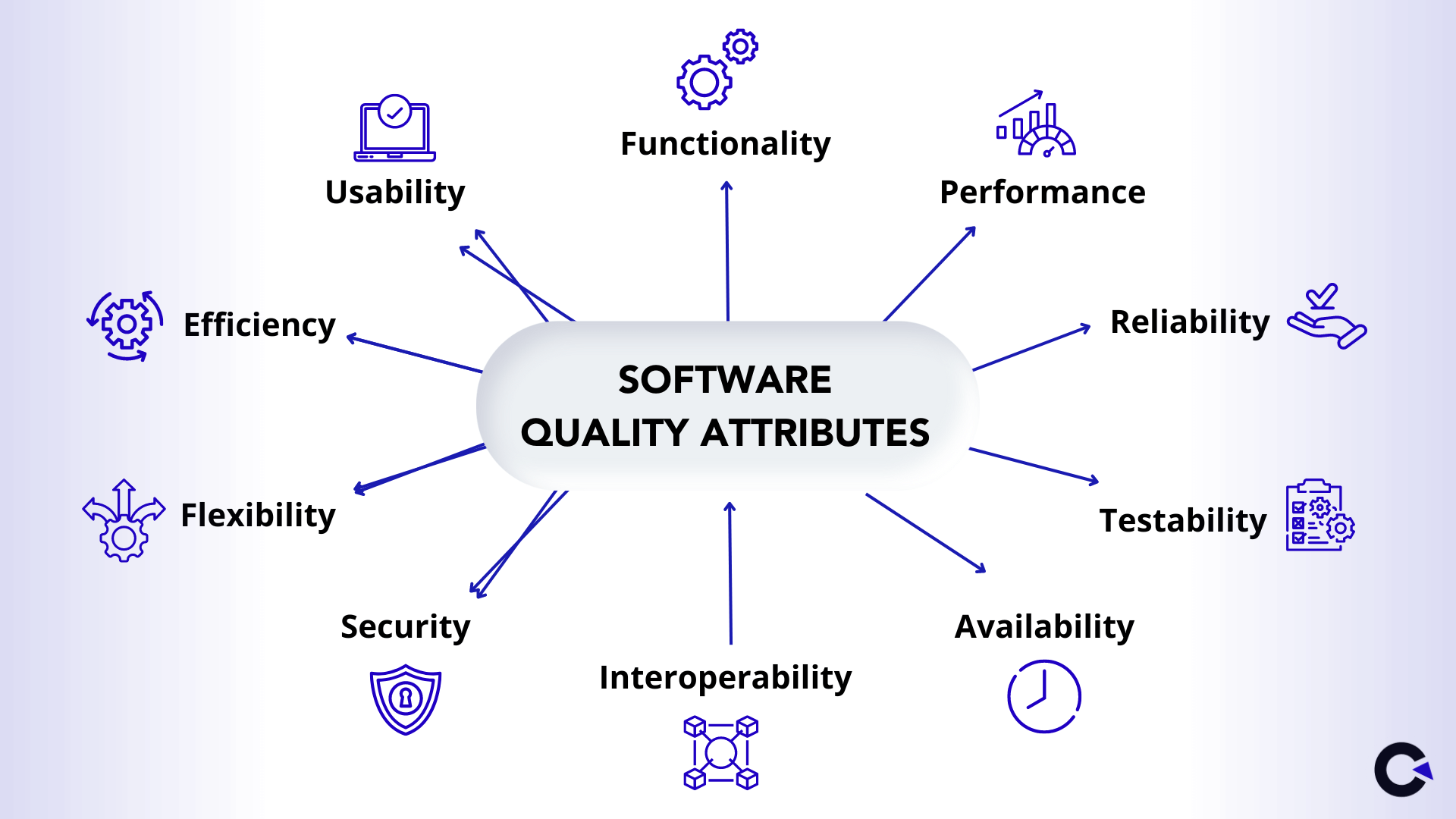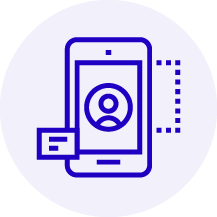|
Listen to this blog
|
Software Quality Attributes are features that facilitate the measurement of a software product’s performance by Software Testing professionals. They play a vital role in helping software architects guarantee that a software application will perform as expected based on the specifications provided by the client. Though there are numerous software quality attributes, we will be focusing on the most important ones that we have mentioned below.

List of Software Quality Attributes
- Functionality
- Performance
- Reliability
- Testability
- Availability
- Interoperability
- Security
- Flexibility
- Efficiency
- Usability
Some other essential software quality attributes that we have not covered in this blog are correctness, learnability, robustness, maintainability, readability, extensibility, and portability.
Functionality
The first from the list of software quality attributes we will be focusing on is functionality. This attribute determines the conformity of a software-driven system with the defined requirements and specifications.
Most Software Testing professionals view this attribute as the most important one as an application fails on the most basic level if it doesn’t function as expected. That is why we always advocate performing tests that assess the desired functionality of a system during the early stages of software testing.
Performance
Performance is on our list of the most important software quality attributes as it is a very important trait for every software to have in this fast-paced world. It can be understood as the ability of a software-driven system to conform to timing requirements.
From a testing point of view, it implies that QA testers must check whether the system responds to various events within defined time limits. These events may occur in the form of clock events, process interruptions, messages, requests from different users, and so on.
Related Blogs
Reliability
Now that we have seen the functionality & performance software quality attributes, let’s shift our focus to reliability. Reliability is to check if the application or the testing product with different combinations to see if it withstands its nature and produces the expected results. By different combinations, we mean testing it in different browsers, operating systems, environments, and so on.
Testability
Being a leading software testing company, this is a very important software quality attribute to us. It indicates how well the application allows software testers to perform tests in line with the predefined criteria. In addition to that, this software quality attribute also assesses the ease with which QA engineers can develop test criteria for a said system and its various components.
QA professionals can assess the testability of a system by using various techniques such as encapsulation, interfaces, patterns, low coupling, and more.
Availability
As the name suggests, this software quality attribute indicates whether an application will execute the tasks when they are assigned. It can be defined as a ratio of the system’s available time to the required time it is expected to perform.
Top-notch availability indicates that a software-driven system will recover from operational failures or scheduled maintenance periods without exceeding a specific time value. Availability also includes certain concepts that relate to software security, performance, integrity, reliability, dependability, and confidentiality.
Interoperability
Software-driven systems could be required to communicate and act in tandem with different systems to perform certain tasks. Interoperability is the ability of the system to interact with other systems to exchange the required information via certain interfaces. So, Software Quality Assurance engineers must examine the interoperability of a system in terms of both syntactic and semantic interoperability.
Security
We have added security to our list of the most important software quality attributes as it has lately been the need of the hour. The number of cyber-attacks has been on the rise and users have started prioritizing a product’s safety. So the security attribute measures the ability of a system to protect and block malicious or unauthorized actions that could negatively impact the user or destroy the system.
Security also includes authorization and authentication techniques, protection against network attacks, data encryption, and other risks. It is imperative for Software Testing Companies and professionals to regularly conduct updated security checks on systems.
Flexibility
If keeping up with the security threats is a key aspect, so is the system’s ability to keep up with the upcoming trends and requirements. And for that, the system should be flexible enough or should be able to modify accordingly.
For example, let’s say you’re working on a web application that was developed when Windows 8 was launched. As the OS gets upgraded, the application should be flexible enough to support future versions such as Windows 10 & 11.
Efficiency
Though mentioned at the bottom, it is still one of the most important software quality attributes. Why? Because an inefficient application might work well only when it consumes excessive resources that slow down other applications or the system on the whole. In addition to checking how long it takes to complete a process, it is also important to check the level of system resource usage.
For example, if the system uses the entire CPU power and memory for a single application. It can be considered to be inefficient as it pulls down the performance of the entire system from the user’s perspective.
Usability
Though all software-driven systems are designed with ease of use in mind, not all achieve this goal. And the software quality attribute of usability denotes the ease with which users are able to execute tasks on the system. It also indicates the level of user support provided by the system.
In addition to general usability, Software Quality Assurance engineers must also test if the software is accessible to people with different types of abilities. Usability plays a critical role in a product’s success and the most well-known principle to achieve it is KISS (Keep It Simple Stupid).
In Conclusion
As one of the top QA companies, we firmly advocate using these software quality attributes to access the performance of a software product. We stand by the fact that these attributes lead to the creation of balanced and highly functional software applications and products. We have published a lot of high-quality blogs on software testing and encourage you to explore our collection.





















Comments(0)